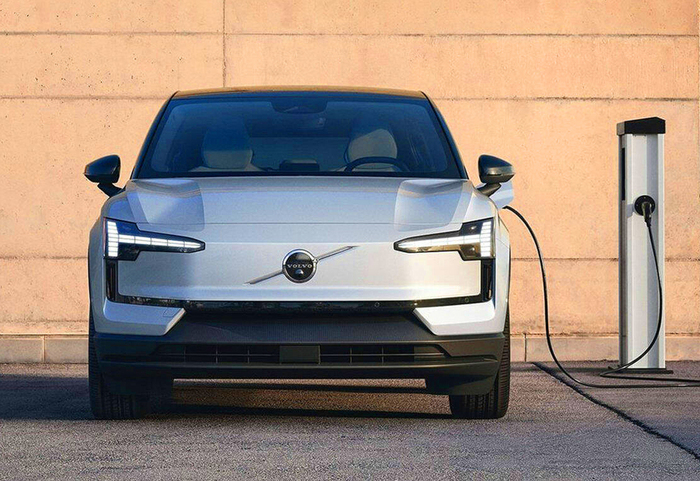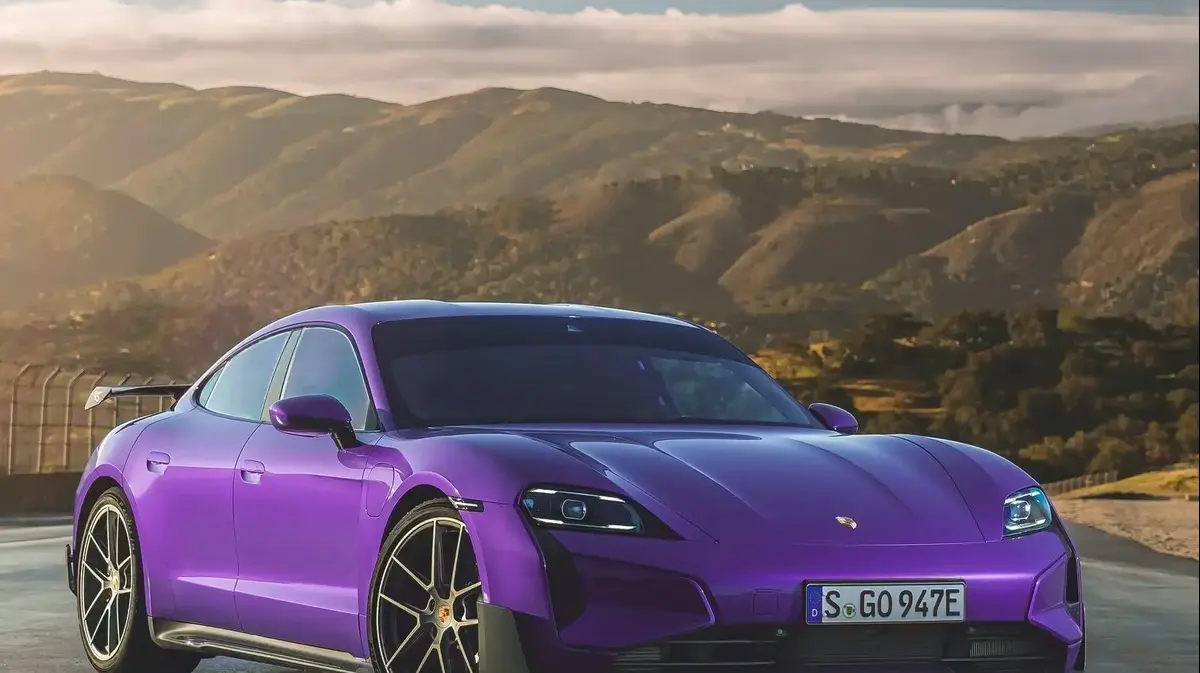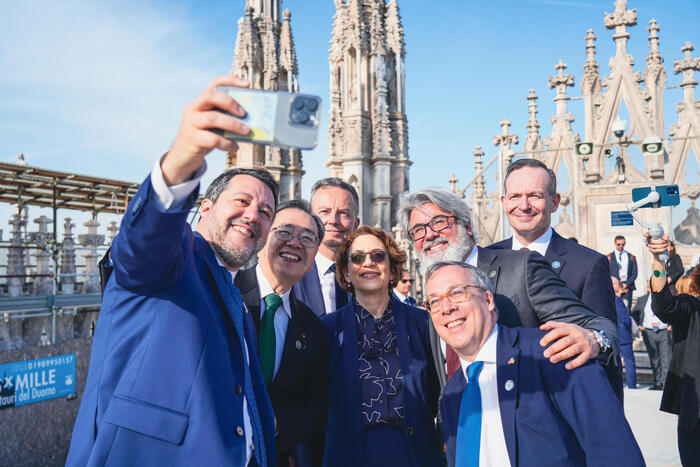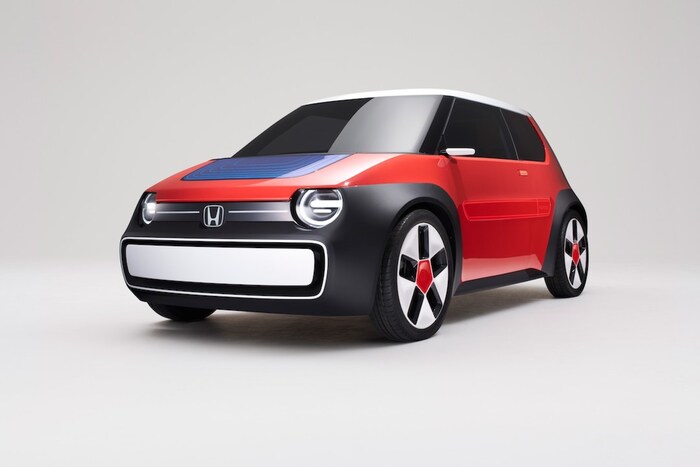In a few decades, a car will not cause a single gram of CO2. Neither in production, nor while driving or in its disposal. That is at least the stated goal of many European automakers - which also call a fixed date.
While Volkswagen dates the way to the year 2050, the Swedish manufacturer Volvo is already setting Day X to 2040. Mercedes wants to make it even one year earlier. At the latest, all three manufacturers do not want to build vehicles that are powered by an internal combustion engine. BMW is the only major German manufacturer, however, is not committed to a date. What manufacturers want to achieve, whether it is realistic and who is going ahead - a fact check.
Volkswagen: Climate neutral by 2050
"We understood," said then VW CEO Matthias Müller 2017 at the IAA. At that time, Müller announced the complete conversion of the VW Group to electromobility. "This is not a non-binding declaration of intent, but a self-commitment, from which we can be measured from today."
Two years later, his successor Herbert Diess is on the IAA stage and presents the electric car VW ID 3. The electric successor to the Golf is at the same time the promise to make electric mobility mass suitable.
To be CO2-free by 2050,
- VW wants to bring to 2028 almost 70 new electric models on the market. Overall, the Group intends to produce 22 million e-vehicles during this period
- VW converts the plant in Zwickau, where the ID 3 is produced, gradually from the combustion engine production to the electric car factory. There should run from 2021 to 330,000 electric cars per year from the tape. Cost: 1.2 billion euros
- VW introduces an environmental ranking for its suppliers . If a supplier does not meet the VW environmental criteria, it is excluded
- At its headquarters in Wolfsburg, the coal plant is currently being converted into a gas-fired power plant for 400 million euros
- VW wants to pay compensations for climate protection projects such as afforestation of forests for production steps that can not be completely CO2-free. For customers who refuel no green electricity, VW also wants to compensate for CO2. This would be a VW car at least on balance CO2-free
"Volkswagen is currently the best of the German manufacturers," says Peter Mock of the International Council on Clean Transportation (ICCT). The Wolfsburg pursued a credible strategy, so Mock. " Volkswagen is pushing the topic forward by all manufacturers the most," confirms Stefan Bratzel, director of the Center of Automotive Management (CAM). Like no other manufacturer, VW also makes it clear that the electric car has to be sustainable over its entire life cycle. "Otherwise you will continue to operate only symbolic policy," says Bratzel.
By 2023 , VW wants to invest about 30 billion in technological change, another 14 billion will flow into the network and assistance systems. From 2040, VW also wants to completely stop the sale of burners. VW wants to compensate for every business flight of employees in the future. This suggests that in Wolfsburg actually started a new thinking. On the one hand, such large-scale investments can hardly be taken back, and on the other hand there is a high economic risk - even for a group as large as VW.
Volvo: Climate neutral by 2040
Also, the Swedish manufacturer Volvo calls clear goals. In addition to the electrification of the engines, the Swedes are currently developing further measures to reduce CO2 emissions.
By 2040, the manufacturer wants to be completely carbon neutral and for it
- as a first step, reduce the carbon footprint of each model over its entire life cycle by 40 percent by 2025 compared to 2018. For Volvo wants from the end of 2020, no pure gasoline, but only offer electrified cars
- increase the electric car share of all vehicles sold to 50 percent by 2025
- Reduce the proportion of recycled plastics by 25 percent by 2025
- Reduce CO2 emissions across the enterprise, including manufacturing and logistics, by 25 percent by 2025 For this purpose, Volvo is currently converting its plants to CO2-free production
"Volvo is still relying heavily on plug-in hybrids, which could be a problem for the Swedes," says Bratzel. According to plug-in hybrids there is a strong difference between the stated and the actual fuel consumption. This is partly up to three times higher on the road. As a result, there is a risk that Volvo will become CO2 neutral only on paper due to the supposedly economical plug-in hybrids.
Although other manufacturers such as VW or Mercedes currently rely on plug-in vehicles, but at the same time they start to bring electric cars in a big way on the market. By contrast, Volvo will not be selling the first electric model until the end of 2020. Bratzel: "Volvo still has a lot of work to do and has to be careful that its climate strategy does not turn into a paper tiger."
Mercedes: climate neutral until 2039
Mercedes wants to be the fastest and make its new fleet with the so-called "Ambition 2039" climate-neutral within the next 20 years. That's what Mercedes wants
- By the end of 2022 , all passenger car plants in Europe will be CO2-neutral
- By 2030, the share of electrified vehicles in car sales should reach 50 percent
- reduce energy consumption in production by around 40 percent by 2030
- For the next electric car generation, 100 percent of the battery cells will be produced using electricity from renewable energies, thereby saving 30 percent CO2 in battery production
- Make concrete agreements for CO2 reduction with suppliers and exclude suppliers who do not meet the requirements of Mercedes
"Mercedes is committed to CO2 neutrality and deposits this with a credible program," says Bratzel. The manufacturer takes steps that show that the issue is taken seriously and will not disappear from the agenda. Daimler is also currently heavily relying on plug-in hybrids and has recently greatly expanded its range of vehicles. Nevertheless, Bratzel sees Mercedes on a good path to climate neutrality, as Mercedes is simultaneously beginning to bring pure e-cars on the market.
BMW: climate neutral up?
BMW is the only major German manufacturer that does not name a specific target year for CO2 neutrality. Instead, the Bavarians have already developed in 2001 a plan with ten sustainability goals, which they want to implement by 2020. Among other things, BMW wants
- Reduce the CO2 emissions of its European new car fleet by 50 percent by 2020 compared to 1995
- to offer a total of 25 electrified cars by 2025 , including 12 pure e-cars
- Reduce the resource consumption of each vehicle produced by 45 percent by 2020 compared to 2006
- obtain electricity from renewable energies by 2020 only
The fact that BMW has no fixed annual target is not a sign of a lack of ambition in terms of CO2 reduction, says Mock from the ICCT. "BMW already has a comparatively high proportion of electric cars and plug-in hybrids that can be built on."
At BMW it is said that one is on the right track on the right track. For example, BMW already uses renewable energy in Europe. Whether the manufacturer sets itself after the end of the current sustainability plan in 2020 on a date for CO2 neutrality, according to a BMW spokesman is not yet clear.
"The manufacturers have understood"
However, the annual targets for CO2 neutrality are not the most important criterion, says expert Mock. "Long-term projects are always easy to proclaim, because you can not control them." More important are short-term goals, Mock says, meaning compliance with the emission limits for 2021. From then new cars may emit on average only 95 grams of CO2.
Colleague Bratzel sees it differently. He considers the goals of the manufacturers to be realistic and it makes sense to set fixed dates as destinations. Nevertheless, Bratzel also calls for binding intermediate goals to be monitored politically. Because it does not help to start solving the problem in ten years' time, because you still have so much time. "In principle, the manufacturers have understood the problem," says Bratzel.
A possible insight and noble intentions, however, is opposed to the problem of rising SUV sales figures. And to continue to serve the demand, many manufacturers currently electrify especially large SUV models. Compact, economical cars would be the order of the day.
A completely CO2-free car, on the other hand, is wishful thinking. The supply chains of the manufacturers are too complex. One last certainty, under which conditions the cobalt is broken down for the batteries and where CO2 emissions are generated everywhere on the long delivery routes, does not belong to the manufacturer. By compensation payments for climate protection projects, the car is thus only on balance, so on the paper emission-free. But that does not hit the heart of the problem.
Simply driving with electricity instead of oil in the future, without rethinking mobility in itself, is not a long-term solution. Instead, the manufacturer would also have to consider whether you could build from the sheet of a large SUV not two small car bodies. Or whether it would even be desirable to sell fewer cars, to relieve the inner cities and to think more intensively about more sustainable and profitable mobility concepts. Because the zero-CO2 car will not exist in 2050 yet.















